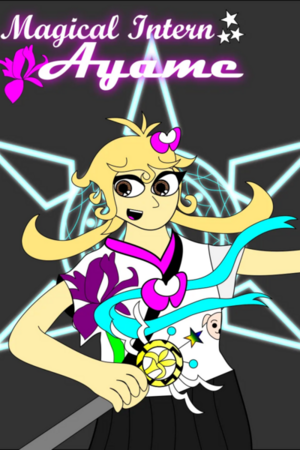Chapter 20:
The Fortress Breathes Again II
How To Warm A Dying World
The lantern on Noel’s table glowed with its steady, ordinary light. Akari padded up and nudged the glass with her nose, searching for the warm hollow she had once used as a refuge. There was nothing now - no soft pocket for a flame to hide in. Noel had set it by the bedside as a reading lamp while she slept on his lap. The small betrayal pricked at her fox pride.
She snorted, a puff of smoke and orange that tickled the nearest stone and left a brief, smudged glow. No cozy shelter anymore, she thought, and trotted for the door. Noel was on duty this morning; the fortress would move in its measured rhythm and he would not be there to fuss over every flick of her tail. It felt like an invitation to explore alone today. After the recent battle, Akari wanted time for herself to reflect on the future.
...
The air hit her like a cold slap. Snow crunched under her paws as she threaded between stacked crates and on the top of canopies. People glanced up; a woman bowed her head and brushed a charm between thumb and palm. Children stopped their game to stare, then squealed with delight when Akari’s tail flared in a playful swish. Embarrassment warmed her ears, and somewhere under it a small hope kindled - a hope that she was beginning to see herself as part of this world.
She found Mira at the northern wall, sleeves rolled and hands flecked with lime and mortar. Mira was shorter than most of the women Akari had seen, compact and lean - half elf, half dwarf, a face and frame that carried both sharpness and unexpected grace. Apprentices scurried under her watch, following her clipped orders with the practiced obedience of those who trusted her judgment.
Mira glanced up when Akari bounded near. Her brow lifted. “You there. Keep your spark modest. Warm these tongs for me, just enough to bend.”
Akari tucked her nose to the iron and breathed a careful heat into the metal. It glowed meek orange, pliable and obedient. The apprentices murmured, surprised, and a lanky boy with soot on his cheeks offered a shy smile. Mira’s voice snapped them back to work, efficient and sure.
They worked in tandem: Mira’s hands steadying, Akari’s small body lending a precise heat. Between measured strokes, Mira spoke without ceremony.
“Can tell that you're thinking things over about protecting the fortress. Let me tell you my story if it'll help you make a choice. My parents were from a place overrun by corrupted spirits,” she said, voice flat and steady. “They hoped the north would be kinder. It was not. They died young.”
She tapped a cracked stone with a gloved finger.
“The old guild master took me in. Taught me to shape iron and mortar. Then last year he was gone, and the forge went cold. I woke up the next morning with the guild on my shoulders. You learn quickly or you fold.”
There was no self-pity in her tone. Grief had been pressed into service and forged into duty. Akari thought of how Barkley had warned her about Seren and how the captain kept things buried deep, how silence could be a weight. Mira’s grief showed on her hands and in the way she spoke; it was not hidden. Akari found that honesty less frightening than the concealed sorrow Barkley had described. She thought about the many faces around her and the private things they might carry.
When Mira stopped, she unfastened a narrow braid of cloth from her belt—threads of red and gold woven tight, a little bell knotted at the end. She crouched and tied it around Akari’s tail with deft fingers. The bell rang, clear and bright.
“Red for Vael-Arin,” Mira said, as if explaining to a child, though her voice carried no condescension. “Warmth and memory. Gold for Elarai, the creator who watches us all. The bell’s for warding - blessed by the head priestess. It's sound keeps darker things shy for a moment.”
Akari’s tail swung, and the bell chimed merrily.
The afternoon settled into a steady churn of tasks. Akari ferried warmed nails and iron brackets, nudged torches into place, and pressed her warm body against cold metal to steady a trembling apprentice. Mira explained the practical rituals of their trade as they worked: where charms were hidden in lintels, how hinges had to be hammered at a certain angle to keep frost from binding them, and why every scrap of metal was worth tempering twice over until it would not fail in winter’s bite.
“We stitch the fortress together so the rest of you can go out and be loud with your steel and magic,” Mira said once, blending a little humor with the plain fact. “We build ovens that keep bread from freezing, beds that don’t rot with the damp, toys that make children forget the cold for an hour. Those things matter.”
Her face softened for a moment as she watched the apprentices. “You cannot drown in your sorrow when people depend on you. You fold it into what you do and keep piling bricks until it becomes something else.”
Akari chewed on that, the idea settling around her like one of Mira’s warm oven bricks. The battlefield had taught her how to set the world alight; here she learned something quieter - how to mend and make the world livable. It felt, in its way, like armor she could wear under her fur.
When a distracted apprentice nudged a bucket, Akari’s new bell spun and trilled. The sound startled them all, and the bucket toppled with a clatter. Akari jumped back, embarrassed, tail tip flicking like a metronome. Mira only laughed, a quick, unexpected sound, and set the bucket upright with a firm hand. “If your bell can’t keep the dark away, at least it saves us from being dull,” she said, patting Akari’s head.
...
By late afternoon the fortress had filled with the warm clutter of domestic life. Lanterns swung, and the smell of stew drifted from open windows. Families gathered at long tables, sharing bread and stories. Old women argued good-naturedly about whether to salt or smoke the day’s catch. Children chased each other until they collapsed, breath steaming in the air. No one wrapped themselves in the heavy, formal black of mourning; the last night had taken no lives, and people chose to press their luck toward life rather than linger in grief.
Akari sat on a low wall and watched, her chest tightening with a slow ache that was not entirely sorrow. She watched a mother tuck a sleeping child under her cloak, heard laughter spike as someone pretended to lose his spoon. That ordinary clamor made her dizzy with longing. She wanted that small warmth. She wanted to be able to sit with Noel and share a bowl of stew, to be a part of the soft noise of family.
When she rose, the bell at her tail chimed. The sound felt like an answering step in a long journey - small, steady, and resolute. She skidded across a patch of ice as she ran, paws skittering but sure, and darted toward their quarters. Noel would be back from his patrol soon. She wanted him there when she arrived - wanted to sit and feel the quiet ordinary of being part of something that wasn’t salt and smoke and shouted orders.
The bell rang again, bright and certain, and Akari ran.




Please sign in to leave a comment.